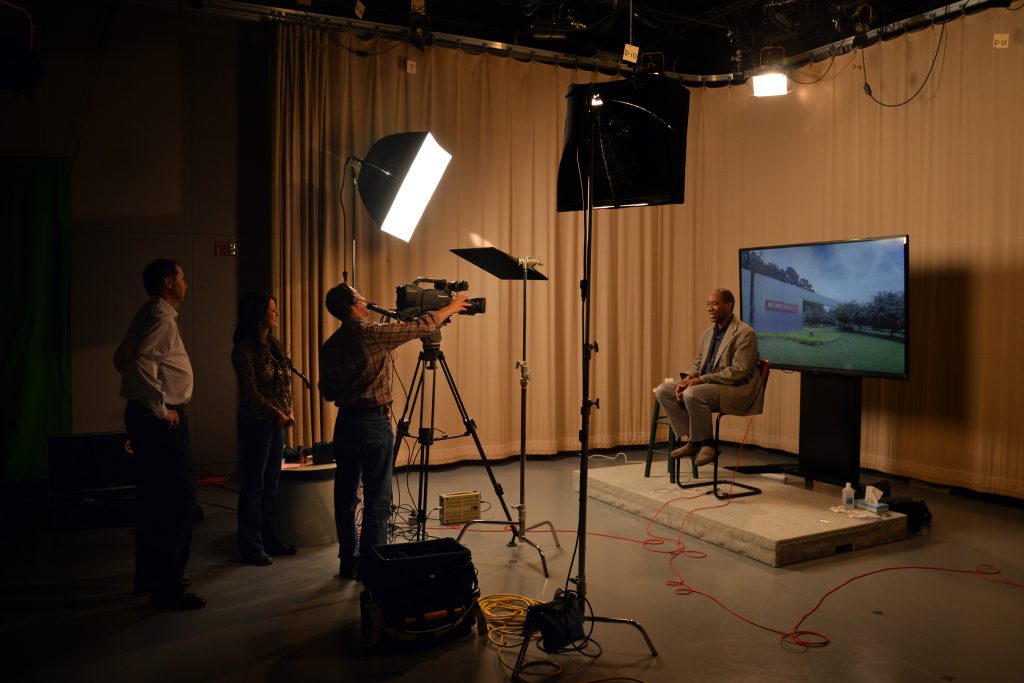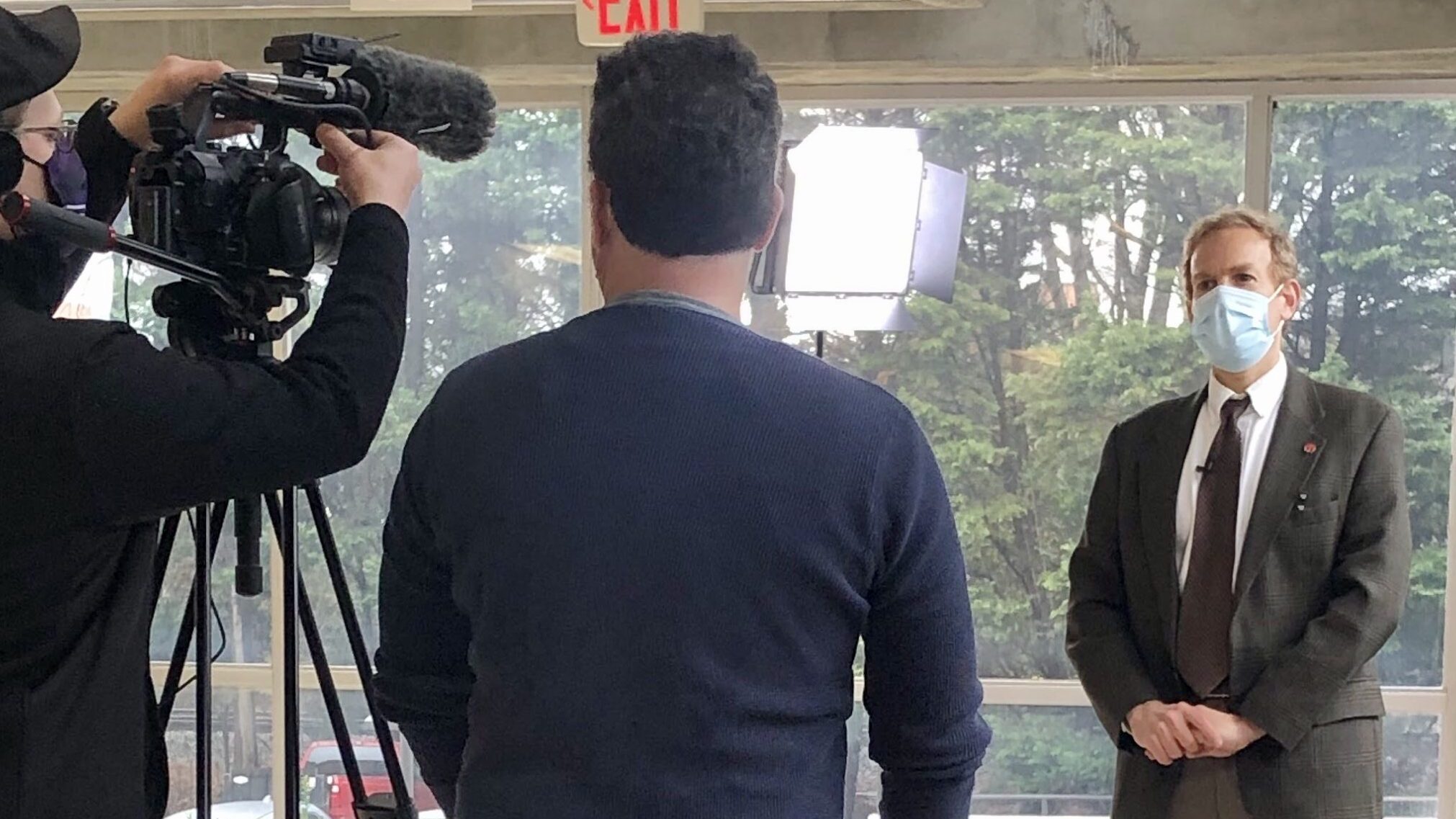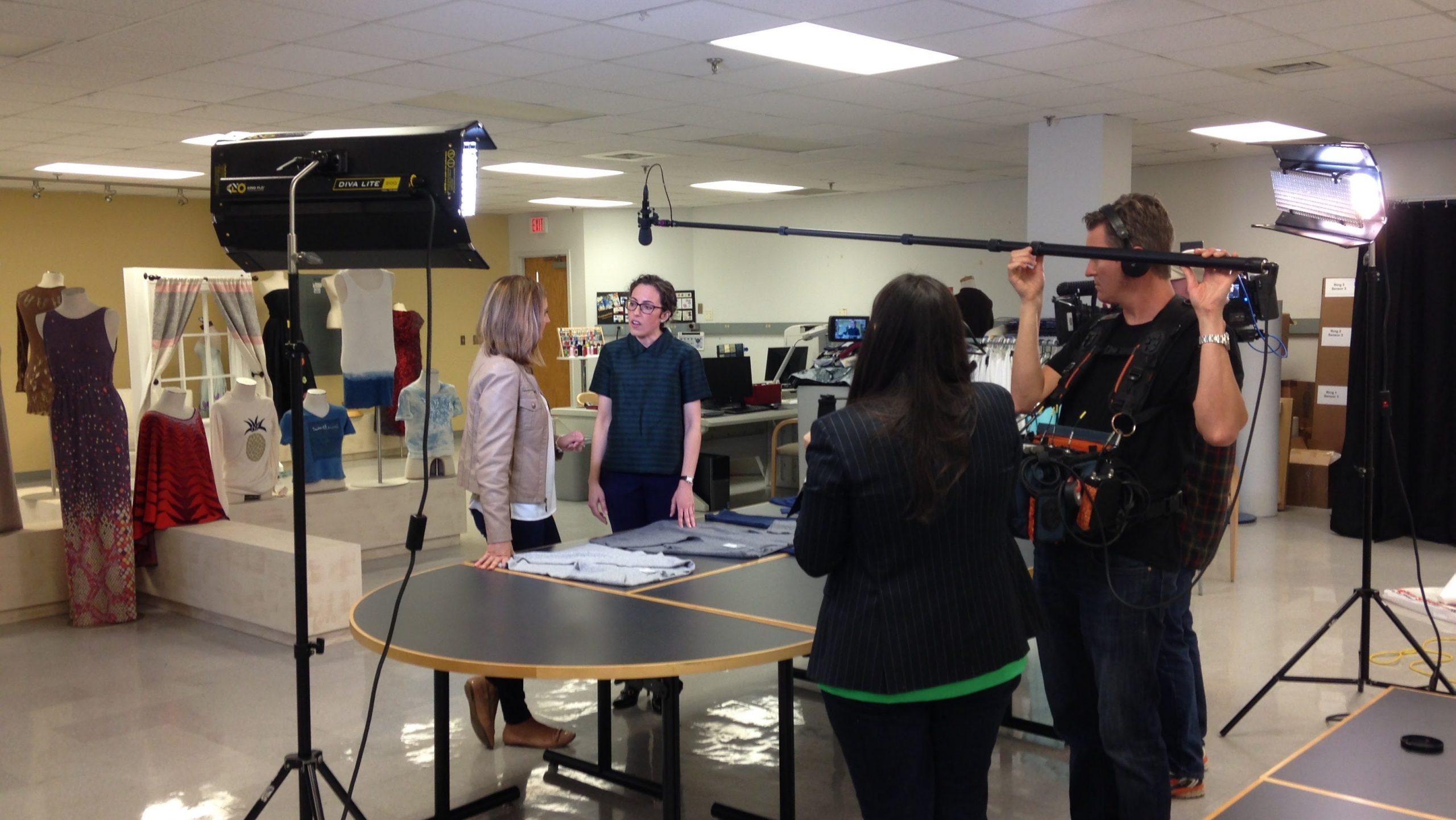Faculty Support
NC State News Services provides leadership, assistance and support to faculty members as they engage with the media. We offer a suite of trainings, ranging from communicating science to media relations. If you're interested in registering for a training session, click here.
What Is News, Anyway?
News generally has to be new. But not all that’s new is news. NC State News Services can help you identify these opportunities and can provide honest advice and counsel about what excites the media — and what doesn’t. In general, we suggest you put yourself in the shoes of an editor. The questions editors ask about every possible story is, “What is it?” and “Why should my readers/listeners/viewers care?
News is:
- Research, ideas or opinions that challenge old or preconceived notions. For example, freshly published results in prestigious scientific journals can be especially good story “hooks” to interest media
- Trends, especially those taking hold across the country. Going against the grain, or the antithesis of trends, can also be newsworthy
- Stories about real people
- Issues involving money, sex and death, and how to get more of the first two and delay the third
- Drama, conflict and controversy
- Quirky and different with a “gee-whiz” or “I didn’t know that” hook
News is generally not:
- Groundbreakings or building dedications
- Individual grants and fellowships
- Academic honors or awards
- Conferences or books
- New programs, centers, institutes or any other process-driven news. People want to know about the good work being done at a center or institute, not the center or institute itself.
How We Can Help You
We help faculty work with the media to showcase their research.
Media relations is an important part of what we do. As the university’s public relations unit, many of our staff members were once members of the media and are trained to help you navigate the world of media relations.
We help faculty and the campus community in many ways:
- Write and send news releases to media, news wires, and news.ncsu.edu
- Provide media training for how to best communicate with media and conduct interviews
- Disseminate media advisories to get media to come to campus to report your important, newsworthy and visual events
- News tips to offer NC State expertise on breaking news
- Advice and assistance with opinion pieces or op-eds that get your message directly to thought leaders
- Direct pitches to reporters to help educate them about your work
- Manage a centralized database of university experts that are available for media appearances
- Create news stories published across NC State’s websites and The Bulletin, the university’s faculty and staff weekly newsletter
- Consultation on strategies to achieve your communication goals and offset potentially harmful issues through effective crisis management

Why Work with the Media?
As a public university supported with tax dollars, NC State has a responsibility to be open and responsive to information requests from the public and the news media.
NC State faculty and staff experts are frequently interviewed about topical issues, while administrators are sought for comment on the operation of the university.
NC State News Services is available to help when media call to request interview time or comments. When receiving requests from media, you should always contact News Services before responding.
After consultation with News Services, faculty and staff are encouraged to give interviews and to provide information on matters within the realm of their expertise in a timely and courteous manner. Every interview is an opportunity to communicate your message.
Positive publicity about your work has its benefits. While we can’t guarantee these types of results for every story, anecdotal evidence suggests many positive tangential benefits, including increased industry and academic contacts, funding opportunities and opportunities for collaboration.
Interview 101
The following tips will help you make the most of your interactions with the media. More in depth media training sessions are periodically offered to the campus community.

Preparing for an Interview
- Hurry, but don’t rush. Reporters calling for interviews are usually working on some sort of deadline. If you’re called unexpectedly, ask the reporter to give you a few minutes to collect your thoughts. Call News Services, and we’ll help you with a response.
- Outline your main points. Make a list of two or three brief main points you would like to make during the interview. Reporters are often looking for quotable quotes — punchy and colorful lines that can be lifted for a “quote box” in written articles or a “sound bite” for air time.
- Give reporters background information. Reporters appreciate having ample background materiel, especially if the topic is complex, or involves many facts and figures. This minimizes errors and omissions. Ask if the reporter would like to review background information before you meet.
- Anticipate difficult questions. Make a list of questions you’d rather NOT answer, and then think about how you might best answer them. We can help you anticipate and prepare for tough questions and provide effective methods of transitioning back to your message.
Tips for a Successful Interview
- Know your message and stay focused. Stick to your main points and do not get drawn off on tangents. Start with a research conclusion or underlying theme, work through the details of the story, and return to the beginning point. Rephrase and repeat your main points several times to that reporters understand your view.
- Keep it simple. Begin at a basic level and avoid academic and technical jargon. If you must use special terms, spell and explain them. Be brief. Reporters are looking for short responses. Shorter comments are less likely to be edited.
- Be honest. When you speak as a news source or expert, your credibility — and NC State’s — is at stake. Be upfront about potentially negative and damaging information. If you don’t have the answer, say so. Never say “no comment.” Instead, explain briefly why you cannot or choose not to answer.
- There is no such thing as “off the record.” If you don’t want to hear it on the evening news or read it in tomorrow’s paper, don’t say it.
- Correct your own mistakes and clarify confusing statements. If you have made a mistake in an interview, or if you find you’ve strayed seriously from the question asked, simply stop and correct the mistake, or ask if you can give another response.
- For radio and television interviews, be aware of your surroundings. Avoid noisy places, close office doors, and turn off the phone or computer if necessary. For television interviews, wear simply, solid-colored clothing. Look at the interviewer, not the camera. Pause briefly before answering questions or changing subjects.
- Assume the microphone or tape recorder is always on. Always keep tip No. 4, above, in mind — especially before and after interviews.

After the Interview
- Ask questions. Make sure the reporter has all the facts straight. For very complex or controversial statements, ask the reporter to read quotes back to you for accuracy. Reporters seldom allow sources to approve a full story.
- Inquire about the final product. It’s okay to ask when the story will run, but remember most reporters won’t know because the decision is made by their editors.
- Give feedback — both positive and negative. Newspapers and magazines run corrections for major mistakes and omissions. If a mistake is minor, it is best to let it go. Serious mistakes, misconceptions and unbalanced stories should be brought to the reporter’s attention. If a story is well done, compliment the reporter.
Working with NC State News Services
News Services can help you get your research and expertise in front a wider audience. If you’re contacted by or working with the media you should contact News Services at newstips@ncsu.edu or 919-515-3470 to help ensure you’re communicating your — and NC State’s — message effectively.